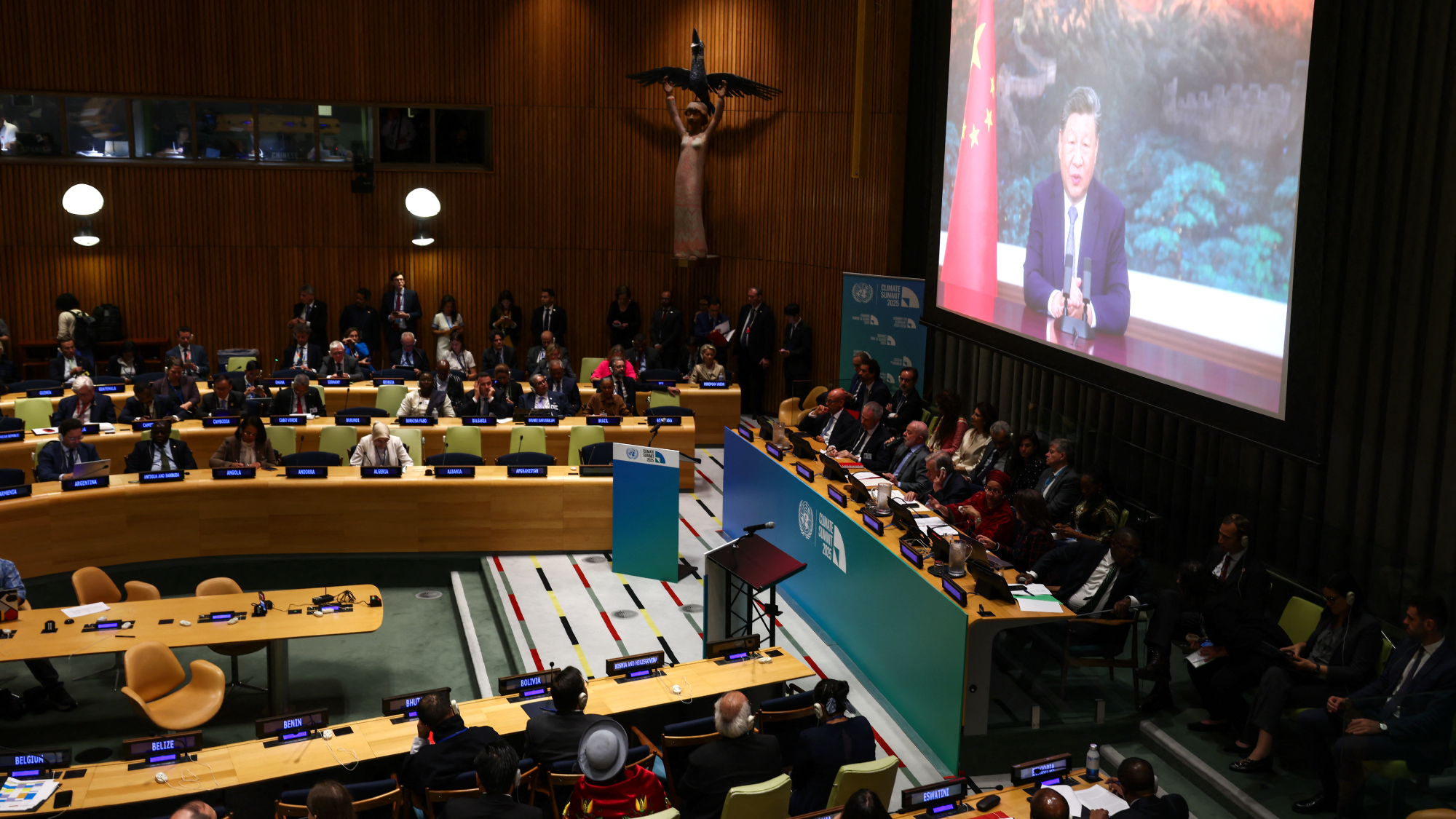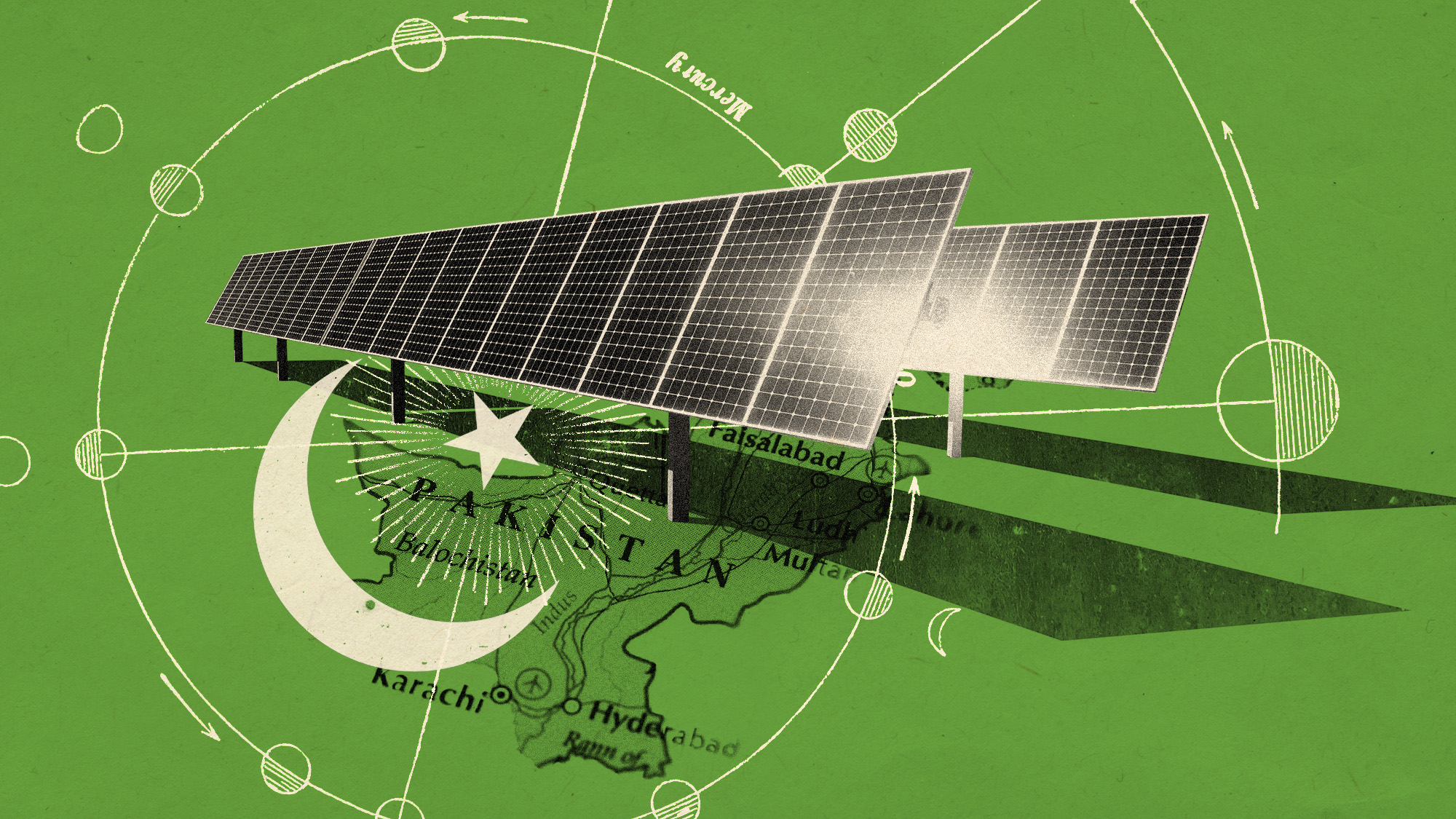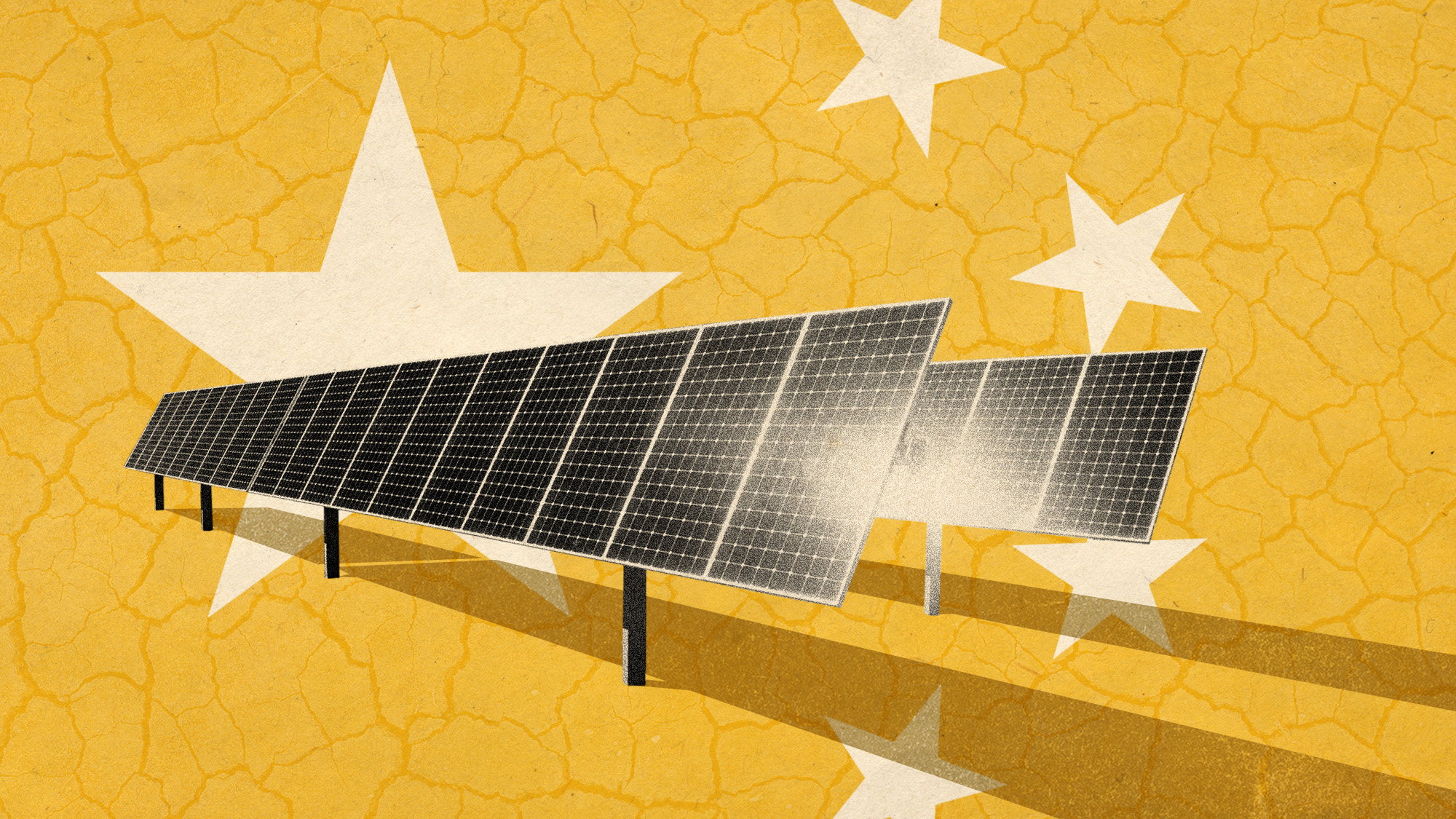Antarctica: is coldest continent heading for chaos?
China and Russia signal new scramble for control of the resource-rich region

A free daily email with the biggest news stories of the day – and the best features from TheWeek.com
You are now subscribed
Your newsletter sign-up was successful
For over 60 years Antarctica has been a "veritable Shangri-La", said The Economist, "untouched by war, unspoilt by humans, where all nationalities are welcome".
While Britain, Argentina, Australia, Norway, France, New Zealand and Chile have long held territorial claims over the vast continent, since 1961 it has been governed by the Antarctic Treaty which guaranteed its use for peaceful purposes and scientific research.
The treaty has "endured and expanded" for so long "due partly to its wisdom and partly because defying it, in practical terms, is hard to do", wrote former Royal Navy icebreaker captain Tom Sharpe in The Telegraph. There has been the sense though that "as soon as Antarctica's vast resources become economically worth the risk of exploiting, this would change.
The Week
Escape your echo chamber. Get the facts behind the news, plus analysis from multiple perspectives.

Sign up for The Week's Free Newsletters
From our morning news briefing to a weekly Good News Newsletter, get the best of The Week delivered directly to your inbox.
From our morning news briefing to a weekly Good News Newsletter, get the best of The Week delivered directly to your inbox.
"We may be seeing the start of this now."
'The model is falling apart'
For decades The Antarctic Treaty was "widely regarded as a model of effective global co-operation", said The Economist. It froze any future territorial claims, effectively removing it from the Cold War geopolitical struggle waged elsewhere around the world between the capitalist West and the Soviet Union.
"But now this model is falling apart" as China, Russia, and other emerging nations threaten a new scramble for control of the resource-rich continent.
The US still has the largest footprint on the continent, but China's is growing the fastest. It recently completed its fifth base "for scientific purposes" and as it strengthens its presence has been accused of "teaming up with Russia to up-end governance in this critical polar region", The Maritime Executive reported.
A free daily email with the biggest news stories of the day – and the best features from TheWeek.com
At the annual Commission for the Conservation of Antarctic Marine Living Resources (CCAMLR) last month, China and Russia vetoed critical proposals aimed at conserving marine life and protecting the region from overexploitation.
Dr Lyn Goldsworthy, from the University of Tasmania and a long-time observer at CCAMLR meetings, told The Guardian that China was seeking to exert its influence in the region for geopolitical reasons, with an eye on future exploitation.
Russia's interest, she said, was likely part of a broader strategy to "disrupt the world's rules-based order" as the country had "very little skin in the game".
Exploiting loopholes
While the continent is believed to hold vast deposits of oil, gas, copper and other valuable minerals, mining is effectively banned by treaty amendment until 2048. This has not stopped China and Russia from openly touting their resource ambitions.
Strategically, countries are also prohibited from "any measures of a military nature, such as the establishment of military bases and fortifications" although the likes of China appear to be exploiting a loophole that allows countries to use members of their armed forces and their equipment for research and "any other peaceful purpose".
This matters, said Sharpe, because "presence and activity may well translate into 'property rights' in the real world one day".
This is why Russia, China and India are all expanding their number of bases, while Turkey, Saudi Arabia and even Iran are looking to secure a foothold on the continent.
Modernising the treaty
Calls to modernise the treaty to create a new global agreement for governing Antarctica would require unanimous support, which Russia and China would not provide.
That creates the need for a "coherent strategy underpinned by an uplift in people, inspectors, ships and mechanisms" for enforcing the existing treaty, concluded Sharpe.
The likelihood of this happening is "low", though. "If political and financial constraints make achieving consensus in Ukraine, Gaza, the Arctic and the China Sea (among many others) hard to come by, what chance is there of overcoming these impediments in the remote, inaccessible Antarctic?"
"For all its flaws, the treaty has kept the peace for over 60 years," said The Economist. "But it is achingly fragile and being sorely tested. Its collapse could lead to chaos in the polar south."
-
 What is the endgame in the DHS shutdown?
What is the endgame in the DHS shutdown?Today’s Big Question Democrats want to rein in ICE’s immigration crackdown
-
 ‘Poor time management isn’t just an inconvenience’
‘Poor time management isn’t just an inconvenience’Instant Opinion Opinion, comment and editorials of the day
-
 Bad Bunny’s Super Bowl: A win for unity
Bad Bunny’s Super Bowl: A win for unityFeature The global superstar's halftime show was a celebration for everyone to enjoy
-
 The plan to wall off the ‘Doomsday’ glacier
The plan to wall off the ‘Doomsday’ glacierUnder the Radar Massive barrier could ‘slow the rate of ice loss’ from Thwaites Glacier, whose total collapse would have devastating consequences
-
 The former largest iceberg is turning blue. It’s a bad sign.
The former largest iceberg is turning blue. It’s a bad sign.Under the radar It is quickly melting away
-
 China vows first emissions cut, sidelining US
China vows first emissions cut, sidelining USSpeed Read The US, the world’s No. 2 emitter, did not attend the New York summit
-
 How clean-air efforts may have exacerbated global warming
How clean-air efforts may have exacerbated global warmingUnder the Radar Air pollution artificially cooled the Earth, ‘masking’ extent of temperature increase
-
 Pakistan's solar panel boom
Pakistan's solar panel boomUnder The Radar A 'perfect storm' has created a solar 'revolution' in the south Asian country
-
 Dozens of deep-sea creatures discovered after iceberg broke off Antarctica
Dozens of deep-sea creatures discovered after iceberg broke off AntarcticaUnder the radar The cold never bothered them anyway
-
 China's winning battle against desertification
China's winning battle against desertificationUnder The Radar Beijing is using solar power to lead the fight as climate change intensifies the threat
-
 Why lithium mining has Serbians up in arms
Why lithium mining has Serbians up in armsUnder the Radar Balkan nation has reinstated controversial licence to extract 'white gold' as race for crucial EV mineral intensifies